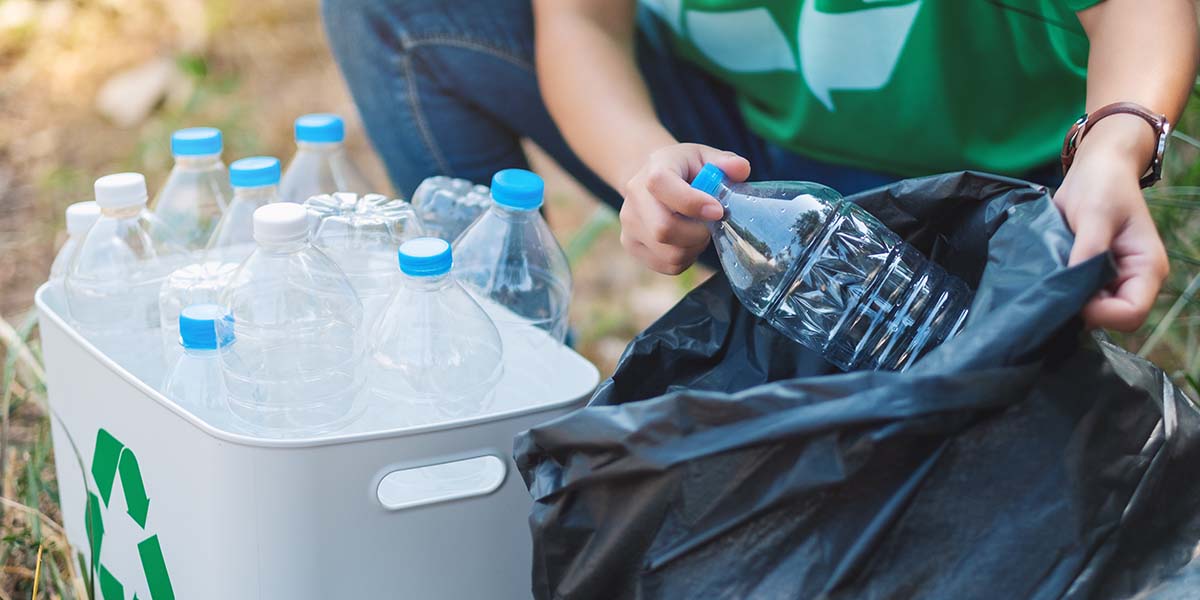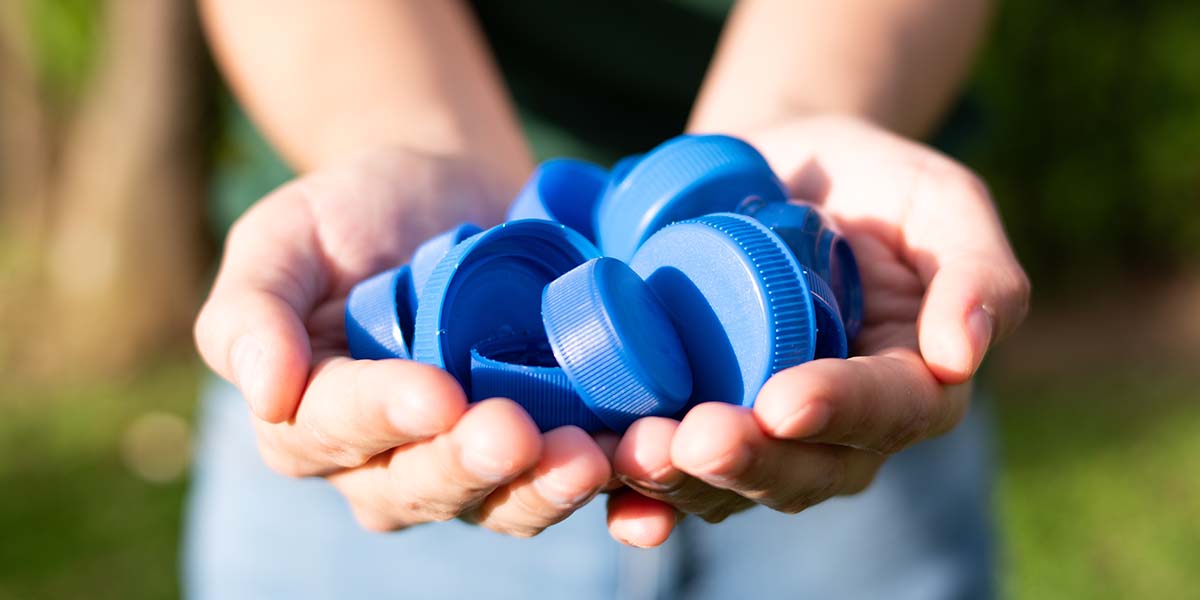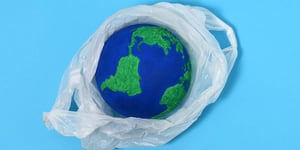Plastic plays an important role in our daily lives and its role and importance in our economy have been growing consistently over the last 50 years. The global production of plastics today is twenty times what it has been in the 1960s, and it is expected to double in the next two decades. The fact is that plastic, with its wide variety of functions, helps us address a number of challenges that we are facing as a society.
Download our e-book about the sustainable materials we use in our manufacturing process >>
Innovative light materials used in the production of planes and cars help save fuel and reduce CO2 emissions, insulation materials reduce our energy bills, plastic packaging plays an important role in food safety and bio-compatible plastics combined with medical innovations can even help save lives. And while we can no longer imagine our everyday life without the positive effects of plastic, we cannot ignore the fact that there are also negative ones.
The current way of how plastic is produced, used and – most importantly – discarded too often harms the environment and has an adverse impact on our lives. This is causing growing concerns and requires urgent measures. The fact is that around 25.8 million tonnes of plastic waste are generated in Europe every year and what’s even worse, less than 30% of this waste is collected for recycling.
To curb plastic pollution, we need to take action at a global level to increase the sustainability of the plastics industry and move towards a more circular approach. In order to do that, the EU created a strategy for plastics in a circular economy that lays the foundations for a new plastics economy. Within this strategy, the production of plastics fully respects reuse, repair and recycling needs as well as promotes the development of more sustainable materials (eco-friendly materials).

Moving towards a More Sustainable Strategy for Plastics in a Circular Economy
Looking at the facts we have mentioned above, it became clear that Europe needs a strategic vision of what the role of plastics in a circular economy should look like. Here are some of the main points of that vision that closely relate to plastics manufacturing.
Changes in Production and Design of Plastics
Changes in the design and production of plastics allow for greater durability and the possibility to reduce and efficiently recycle plastic products. That is why one of the goals is that by 2030, all plastics packaging on the EU market is either reusable or recyclable in a cost-effective manner. At the same time, sorting and recycling capacities should be increased fourfold since 2015, ensuring that more than half of plastic waste produced in Europe is recycled.
Increased Value and Innovative Use of Recycled Plastics
Investing in improved, innovative ways of plastics recycling results in recycled plastics becoming a valuable source for a number of industries. This promotes cooperation between key stakeholders in the field and improves the integration of the plastics value chain. As a result, poorly sorted plastics waste is phased out or replaced.
Growing Demand for Recycled Plastics
Once the market for recycled plastics is established, more and more products will incorporate some recycled content, accounting for a clear growth of demand for recycled plastics. This provides a stable flow of revenue for the recycling industry as well as job security in the sector.
Reduced Dependence on Imported Fossil Fuels
Plastic products using more and more recycled plastic materials also translates into a reduced need for other source materials, ensuring a reduced dependence on imported fossil fuels. As new innovative materials are developed and used, this creates additional opportunities for growth and change.

Turning Visions into Reality: Concrete Measures for Plastics in Circular Economy
To move towards a more sustainable role of plastics in a circular economy, the EU proposed concrete measures to help make this vision a reality. These measures focus on four key areas.
Improving the Economics and Quality of Plastics Recycling
Focusing on recycling plastics is one area that can bring significant environmental and economic benefits, but this can only be achieved by improving how plastics are produced and designed. This calls for key players in the field of plastic manufacturing to work together in order to improve the design and promote innovations that make plastics more easily recyclable, to improve the collection of plastic waste, ensuring a quality input for the recycling industry, to expand recycling capacities of the EU and to establish markets for recycled plastic.
Curbing Plastic Waste and Littering
Curbing plastic waste and littering mainly focuses on preventing plastic waste in our environment, establishing a regulatory framework for plastics with biodegradable properties and tackling the rising problem of microplastics.
Driving Innovation and Investment towards Circular Solutions
Since achieving the objectives included in the strategy is something that will require substantial investments in terms of both infrastructure and innovation, this also means that a large financial investment will be needed. That is why one of the key points is also creating the framework that enables driving innovation and investment in the right direction. The EU has thus allocated certain funding to support these efforts, however, the scale of private and public investments will have to significantly increase.
Harnessing Global Action
Plastic pollution is a problem that is in no way only tied to Europe, and challenges linked to plastics are increasing globally. This is why they also need to be addressed globally. Plastic consumption is currently growing quickly worldwide, and about half of all plastic waste produced in the EU is sent to other countries and continents, where different environmental standards may apply. Only by addressing these issues and pushing for global industry effort, it will be possible to achieve widespread use of recyclable and recycled plastics.
Plastics in a Circular Economy: a Challenge or an Opportunity?
Definitely both, but by tackling these issues with an ambitious and bold strategy, we can turn challenges of plastics in a circular economy into opportunities that will bring us closer to our goal: a more sustainable future for everyone and a cleaner, safer environment for citizens in Europe and all over the world.
Source: A European Strategy for Plastics in a Circular Economy
Find out more about how we incorporate sustainable materials into our production process. Fill in the form and download the e-book with educational content.


